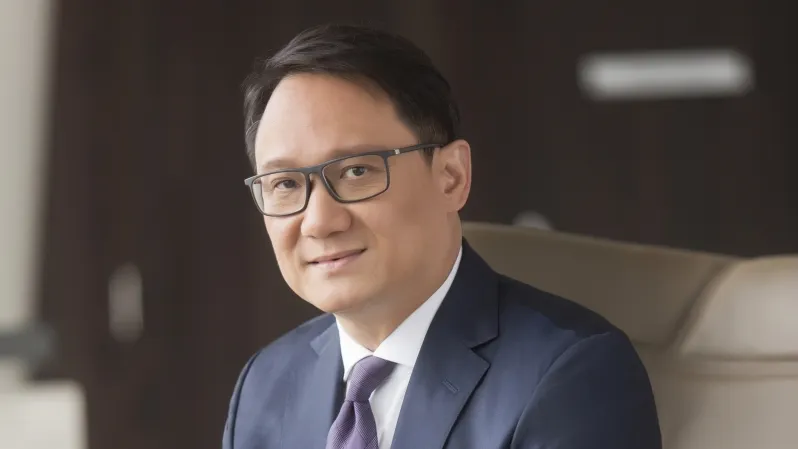
End of cheap money era: Maybank’s Alvin Lee on investing in an era of wealth preservation, protectionism
Globalization is no longer the best strategy for banks if they wish to thrive in the new era of investing.
The age of cheap money is over. Likewise, investors’ priorities in where to park their wealth moving forward have also transformed in the past three years– with health and ESG as key considerations.
“With macro-economic and demographic changes, there has been a shift in investor attitudes. The higher inflation and interest rate environment, global warming, ‘wokeism’ are some of the factors affecting this change” said Alvin Lee, head of Group Wealth Management and Community Financial Services at Maybank, who told Asian Banking & Finance when asked about the current state of investing and wealth management in Asia. “There was a realization that wealth was not all important, and [that] health as well.”
Gone were the days when globalization was the only key strategy that banks needed to heed.
“We have entered into a multi-year period when investors have to get used to higher inflation, higher interest rates, and higher protectionism globally,” he added.
Asian Banking & Finance spoke with Lee to learn more about the state of investing in Asia, as well as the changing priorities of investors and wealth management customers as observed by Maybank.
It’s understandable that during the pandemic and the geopolitical crisis after, some investors may have adopted a cautious approach. In 2023, does such caution continue to reign or influence investment attitudes?
If we are strictly looking at 2023, we were just coming out of the pandemic. Very soon after, we were beset by the Ukraine-Russian war which led to higher energy prices. The unexpected collapse of Silicon Valley Bank followed by a few others, posed another challenge. It seems we are moving out from one issue or conflict into another, which is creating market uncertainties.
I do think that at some point, investors will adopt a longer term investment mindset. They will have to get used to a higher inflation, higher interest rate and lower level of globalisation market environment. I have noticed Asian investors are increasingly more international in their investment approach and more investment savvy as well.
What are the current concerns influencing investment attitudes in 2023?
The erosion of AT1 bonds value are making some investors anxious, and we can expect anxiety level to remain elevated. This has trickled down to concerns on how equities would perform. I would say these are considered market jitters, and investors’ risk appetites will eventually come back albeit in a different paradigm.
Before the AT1 issues surfaced, we saw an increased interest in private markets - whether these were private equity or private bonds. This triggered interest could be due to higher interest rates compared when interest rates were at zero or close to zero. A range of 2 per cent and 3 per cent was enough to entice customers then. But now that we are in a different investment landscape, I think there will be increasing interest in private markets.
Let’s talk about the digital needs of investors. What digital services or digital journeys do Asian investors now seek?
I firmly believe that wealth management and in particular private banking, is still a people business. Very few of us would wake up in the morning and decide to buy a mutual fund or a bond. We still need our relationship managers to offer propositions before we make an informed investment decision.
Not all investors have the information to have a pulse on market outlook, nor have the time to self-direct their investments. In the foreseeable future, at least, with this current generation of investors, wealth management is still primarily a people business at its core.
But if you fast forward to 20 or 30 years later, our children who are digital natives, will be very comfortable to self-direct their investments through digital platforms. Even today, we have noticed that investors are already embracing a hybrid or phygital communication model in their investment journey
What has Maybank done to meet these new needs and future-proof its services?
We are very conscious that we need to harness digital capabilities, keep abreast of evolving needs and technological changes. I would categorise digital capabilities in the wealth management space into three pillars.
The first pillar is giving customers online access to their investment portfolios and balances. The second pillar is offering more customer-friendly transactional capabilities over time. And the third pillar is leveraging digital channels to communicate and advocate propositions, and enable our customers to self- reverse enquire at the same time. We are constantly enhancing our digital capabilities to future-proof; and for now, we are buttressing our transactional capabilities.
How has the topic of sustainability changed investors’ views and strategies on where to allocate their money?
There's definitely an increased awareness for environmental and social agenda though I believe Asian investors are a little behind the curve compared to their Western counterparts presently. This can be attributed to Europeans being culturally more ESG conscious than Asian investors.
That said, we are at the stage where Asian investors are seeking returns from ESG solutions, and are for now quite prepared to forgo some percentage of their potential returns from ESG solutions in return to contributing towards ESG outcomes.
Over time, more investors will be inclined to invest in ESG solutions in the near future.
Let’s talk about wealth management. Has Maybank changed or pivoted its wealth management strategy over the past three years? What are your current priorities?
We will have to pivot our strategy to appeal to the younger generation. They are likely to have a slightly different investment perspective and approach towards investing, such as being more committed to invest in social or environmental causes through their investment choices – something close to their heart.
Engaging the younger generation is [also] quite different from engaging with their parents, as they are more inclined towards digital means to communicate whenever possible. This means we need to broaden our communication channel mix beyond face-to-face, and be accessible in the communication modes they engage with.
For the next three years, we would want to continue to generate returns above benchmark consistently for our customers, and that's something we seek to achieve.
And the way we do it is not just RMs propagating ideas. Our investment consultants need to ensure that their customers meet their financial goals through investment returns. So while the RMs have revenue targets, our investment consultants are also accountable for performance targets. We have instituted checks and balances to help ensure our customers can reap their returns.
Going forward, it is important for us to create a unique value proposition. For Maybank, there are two key strategic thrusts. As we have a big pool of valued business banking customers, we want to be wealth managers or private bank service providers for these entrepreneurs.
The second thrust is Maybank to be the largest Islamic finance service provider. We seek to create a Islamic Wealth Management proposition to serve the increasingly wealthy Muslim populations in the region, and this is a burgeoning key area for us.
Reports by Capgemini and Oliver Wyman both note that women increasingly control more wealth, yet many firms falter at winning their mindshare. What can you say about this?
We don't differentiate customers by gender and ethnicity as every customer is important to us at Maybank.
We recognise the need to profile our customers and assign suitable RMs to engage and provide them with wealth management expertise. We do not believe in a cookie cutter investment strategy as we are more concerned about customers’ risk appetite and understanding their investment goals. We will then curate investment strategies with customised portfolios for them. We do not currently offer gender specific investment solutions as we adopt an open architecture of solutions that can cater to all client types.
What new or revamped wealth products or services does Maybank offer to meet investors’ renewed needs?
One product that we're proud of is our investment product that offers three share clusters. We start with the Class A share that enables customers who are in their early stage of work life to start small and invest. As they reach the mid-life stage, we have our Class B share for them to gain appreciation or investment returns. The Class C share is their near retirement stage to accumulate their returns and enjoy a comfortable retirement lifestyle.
This offering is an exclusive with Fullerton Asset Management, and it is of great value to clients who are in the retirement stage.
Where is the wealth management industry headed? In your opinion, what can we expect to see in this space beyond 2023?
Competition in this space will only continue to increase. The Chinese banks are already investing heavily in the wealth management space to tap on the wealthy Chinese market; and this space is not exclusive to regional or global private banks who are doubling down on wealth management. We have non-bank competitors such as the robo-advisors and digital banks, which I'm quite sure at some point, will include wealth management in their suite of offerings as well.
It's safe to say that given the increase in wealth, in Asia, in particular, the industry will be very competitive. And with that, competition for talent will come about. There is not a very deep or big pool of talent that [banks] can tap on. Within countries like Singapore and Hong Kong, the talent pool is finite and I think the competition for talent will intensify over the next 12 months or so.
To be ahead of the game, it is important for wealth management players to constantly find innovative ways to serve customers and offer unique propositions to engage them. This is what we are committed to keep doing at what we do best.



















 Advertise
Advertise










